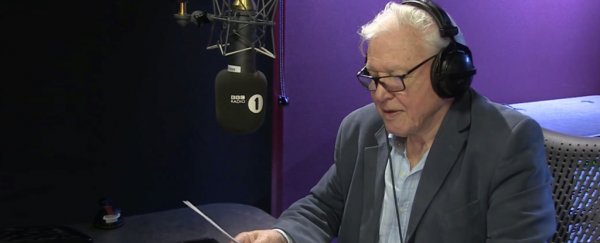David Attenborough is a British naturalist and media personality best known for writing and presenting programs that have inspired the modern format of nature documentaries.
Following a brief term as an editor for a children's educational publisher in the 1940s, Attenborough applied for a radio presenting position with the British Broadcasting Company (BBC). Unsuccessful, he was later offered a job as a producer with the factual broadcasting unit within the emerging BBC television network.
One of the first programs he was responsible for developing was Zoo Quest, a show about discovering exotic new animals in their habitat and bringing them back to the London Zoo.
Attenborough took on the role of hosting in 1954 when the zoo's reptile house curator – who was going to present the series – unexpectedly fell ill. The naturalist's strong desire to present animals in their natural state and environment established a trend in factual presentation in early television programming that continues to this day.
Less than ten years later, Attenborough resigned to take up studies for a social anthropology degree, an endeavour he wouldn't finish. In 1965 he returned to the broadcasting company as controller of the new BBC 2, where he commissioned a broad line-up of diverse programs that included comedies such as Monty Python's Flying Circus and an archaeological program called Chronicle.
Attenborough's contract permitted him to take time to produce and present his own projects, though in 1969 he was promoted to the director of programmes for both BBC channels, a position that further removed him from creating content. Within the next few years Attenborough chose to leave the BBC and focus on making documentaries.
What documentaries did David Attenborough make?
David Attenborough has produced, written, narrated or presented well over one hundred documentaries in his life. These are some stand-out examples, each pushing the boundaries of wildlife photography and cinematography.
Life on Earth was three years in the making, and made David Attenborough a household name following its release in 1979. It was highly regarded by researchers for reflecting a strong respect for science, and appreciated by the audience for its cinematic storytelling. A further seven similar 'Life' documentaries would follow over the years.
The Private life of Plants was released in 1995, with each of its six episodes showcased life cycles of various plants around the world. It stood out for its clever use of slow-motion photography, allowing viewers to witness gradual changes like never before.
Planet Earth was the BBC's most expensive nature documentary to date when it was commissioned. Released in high definition in 2006, only some audiences heard Attenborough's voice narrating the program's 11 episodes. In the US, for instance, actress Sigourney Weaver had the role.
Biographical details
Born: 8 May 1926 to school principal Frederick Attenborough and Mary Attenborough (nee Clegg).
As a person: David initially wasn't considered to have much audience appeal, facing criticisms of having teeth that were 'too big' for a role in front of the camera.
Over the years his face – and his voice – have become synonymous with environmentalism and a love of nature. He has collected dozens of honorary titles from universities across Great Britain, had numerous species named after him, and in 1985 received a knighthood for his work.
All topic-based articles are determined by fact checkers to be correct and relevant at the time of publishing. Text and images may be altered, removed, or added to as an editorial decision to keep information current.
